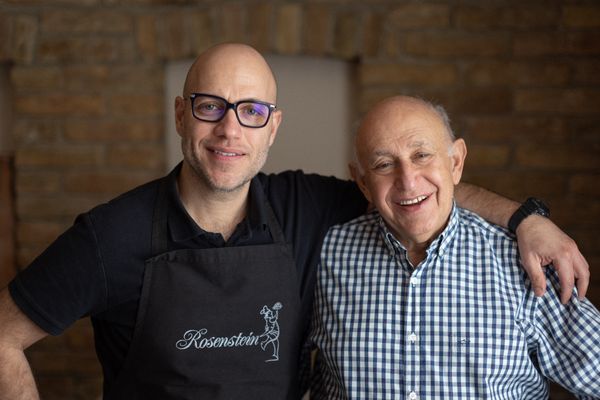Why so many young people are choosing Europe over Silicon Valley? We asked Ugo Celestino Directorate-General for Defense Industry and Space from European Commission about the space industry of the European Union, common successes and the deterioration of space relations not seen since the Cold War. Our interview.
The strategic autonomy of the European Union is crucial, and the space industry is functioning far better than most of the European policies. Why is this area?
This industry is significant regarding the strategic autonomy of the union? Well, I think this is due to the fact that in Europe we have a fully integrated capacity regarding space. We are capable to build rockets, build satellites, build space systems, put them into orbit and operate them. It’s not like in other industry where we have to buy key component outside. We are capable mostly to do it on our own. This is thanks to the industrial capacity of big member states which have a history in space like France, Germany, Italy, but also to the contribution of smaller member states that provide key technologies to space program at the European level. In this industry we almost fully control every step of the supply chain. And we have to make sure that we reach 100 percent autonomy. For example, the Vega rocket produced in Italy has a part of the engine manufactured in Ukraine. When the Russian aggression started it was a big issue to make sure that the rocket can still be launched. This gave us another wake-up call. We need to have the full range of launching capacity across all sizes and options. When we developed the Galileo constellation, some of the atomic clock, some component came from Switzerland, which is of course a friendly country, but still, it’s not in the Union. We are very much advanced in space, but we really need to do the last step to make sure that we are completely independent.
It is quite interesting because if you see the general picture of the space industry as a normal reader of the media, I know SpaceX, I know NASA, I can buy t-shirts or pull-overs with their logo. Also, I know Roscosmos that is one of the biggest players. Regarding the European space industry, you highlighted that it has a big capacity, it has huge capability, but still, there isn’t a chance to realize it. What is the reason behind this bad marketing?
You’re right. It’s wrong marketing. NASA is very good in licensing the brand. They let other organizations to use the logo, and the logo is spread on toys, stationary t-shirts because this is the core business of the licensees. The European Space Agency has a different approach, which clearly is not as efficient regarding the marketing. If we go back to the egg core, you mentioned SpaceX and these missions that come from mostly US entrepreneurs. For Elon Musk space is a third industry where he came as innovator, disrupted it and now operates much more efficiently. He has revolutionized online payment, then automotive, and then space. He has seized an opportunity because the US market was more open, more willing to let new companies, newcomers, to enter the space sector and therefore try their technology. This is due to a number of factors that you may be aware of. In general, the US market is bigger. It’s a unified market. The European market is not yet fully integrated when we come to space or defense. Then you have a lot of funding capability. You have the investors in the US who are willing to take bet and handle more risk. They’re willing to risk much more their own money to make big wins. In Europe, investors, even risk capital providers, tend to be more conservative to look at the steady cash flow, so less willing to do big bets.

If we are talking about the market: who are the biggest players on the it if we are talking about countries, but I am also interested in companies?
We have the historical players, the so called system integrators who are the top of the ecosystem. The big names in Europe are Airbus Space and Defence, Thales Alenia Space, the Italian Avio and Leonardo Aerospace, Defence and Security, the German OHB SE or the Safran and Arianespace from France. There’s a layer of established companies which have been there for a long time. They come from space, defence and aviation. Then you have the new provider appeared in recent time, a generation of new space companies. These are developing satellite, rockets and other space systems in a different ways. I can mention three the Italian D-Orbit and the German start-ups developing smaller rockets (Hympuls, RAF, ISAR). These start-ups are collecting private money to serve commercial markets to deliver smaller satellites. Then we have a very successful stream of companies that use the space data or generate space data to provide service, typically the Earth observation. There is a very successful story which is called ICEYE that is a Finnish-Polish company. The list is quite long and most of the companies started five or ten years ago, and they’ve been very successful. They’re acquitting a lot of young people to grow, to expand. And as the European Commission, we really want to support.
What is the specific policy to support these companies and also young people to join to these industry, stay in Europe and not to go to Silicon-valley?
Many of these people get offer from US investors but we must say that Europe is still attractive for them. These people want to stay in Europe, our lifestyle is different. Sometimes they have difficulty when they are a big company, and they need huge amount of money to expand. The support that the European Commission is developing is basically assistance to entrepreneurs all along the life cycle. From the time when they develop an idea to when they establish a company, they enter the market, they have clients, and when they need more funding to expand. We have a number of activities under the umbrella of what we call the Cassini Initiative, which is aimed to support space entrepreneurship. Few days ago, I attended the Cassini Hackathon here in Budapest where we want to stimulate young people to develop application using space data. Then we have a Cassini Acceleration Program, which will start this year, where when you have developed your concept, you can start up a company and enter the market. We will provide a grant of 75,000 euro without asking any share in your company. Money for free, but only to promising, selected entrepreneurs. If your idea is very well advanced, we provide six months of acceleration service to improve your chances to succeed on the market and in the business. Then we need to support the company to access finance, and this is equity investment or debt investment, which we do together with the European Investment Fund and the European Investment Bank.
In general, we can state that regarding the competition and the innovation, the space industry of Europe is functioning far better than the other parts. Because if we see the innovation level of the EU, I’m going to be honest, we have several areas when the situation is disappointing.
No, definitely space is where we are doing better than in other hi tech fields, like electronics. But the space is not isolated. It is very much integrated with the other technologies. When we speak about Earth observation images, these images have to be processed by a computer. They have to be analysed by algorithms, by interfacial intelligence, therefore space is just one component. We need all of it to be competitive because it is a market full of opportunity, where often you need to be vertically integrated. That’s why we are financing the support of high-power computing, quantum initiative, to make sure that we do not just develop a nice space system that provides data that then is used by somebody else outside Europe.
We talked a lot about the space industry of the European Union, but also if we see the space industry of the continent, we should highlight Roscosmos because it is one of the main pioneers of space industry. How does the current war in Ukraine affect the relationship of EU space industry and Roscosmos?
It is affecting space a lot. We will not be able to launch the last two satellites of Galileo constellation on the Russian rocket as planned. We don’t know until when, so that’s really an impact, we are seeking solutions. The ESA is announced that they stopped the cooperation of lunar exploration with the Roscosmos. It’s really bad because this did not even happen during the Cold War. Even during Cold War, there was always space & scientific cooperation. Now, the situation is really at a critical point. The only area where there is still cooperation going on with Roscosmos is the ISS, the International Space Station. Things are still progressing, but the more time passes, and if the situation stays like that, there will be an impact and it’s not a good one. It’s not a good one for us, it’s not a good one for them too.
That’s what I wanted to ask, where does it hurt more? At the European side or at the Russian side?
I’m not really in a position to assess. As I said, Europe has a full capacity. But from our side, we have had a very long and successful cooperation in the past with Russia. But we have also had problem with them in the past, the situation has been developing and worsening since 2014. This is another call for us to strengthen the whole range of space activities. It’s not about being autarchic, it is about being independent.
We have sanctions right now, imposed by the EU and Roscosmos, the relations are quite bad, but also it is an opportunity in some cases because the European sector can look for new markets, right?
Anytime there is a crisis or a difficult situation, you are pushed to find a solution. And this may be a push for Europe to accelerate the development of the type of launcher that was missing in the product range. This is an opportunity for us, certainly. But time matters a lot in this respect.

TASTE | Tibor Rosenstein & Róbert Rosenstein

Ten thousand IT experts are missing from Slovakia | Innovation and startups in the CEE region - Part III.










